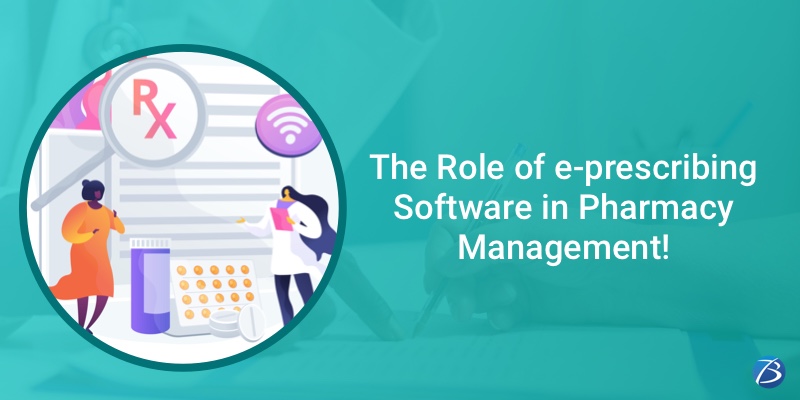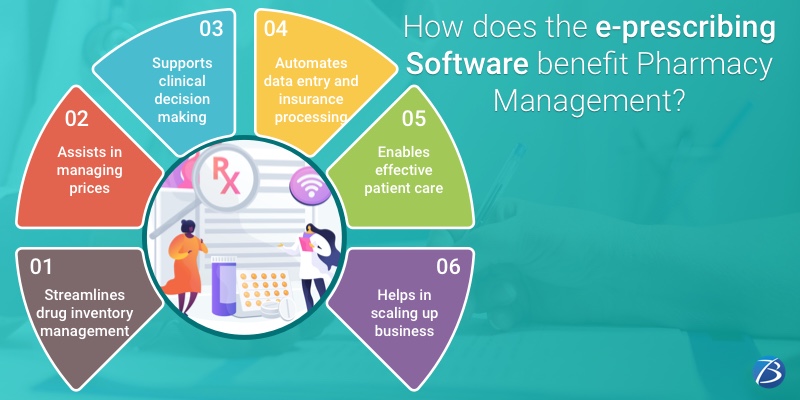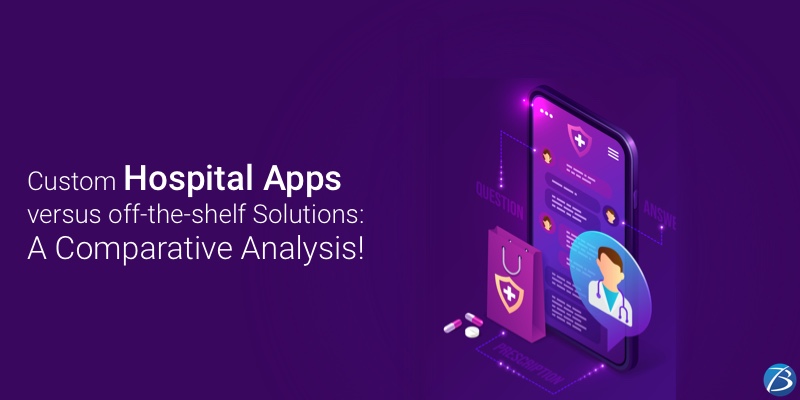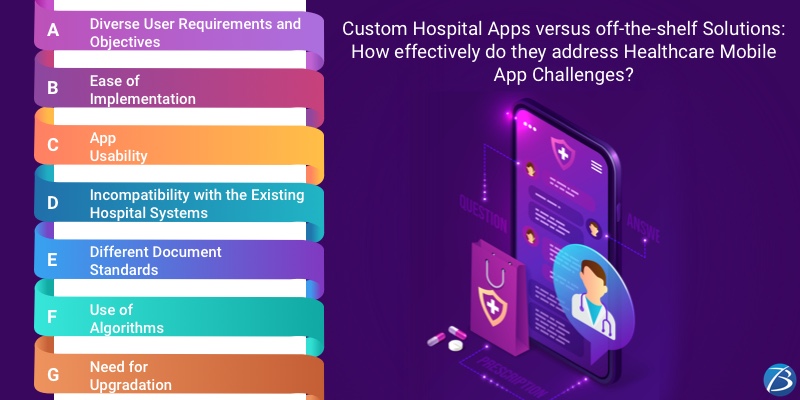How does the e-prescribing Software benefit Pharmacy Management?


Professional pharmacy services are crucial for the individuals of any region. Such services, however, come with certain limitations as pharmacists encounter several challenges that hinder their smooth functioning.
The challenges faced by the pharmacy community are:
- A highly competitive market as well as high customer expectations
- Macroeconomic impacts
- Managing and distributing medicines and handling expiry dates, drug shortages, etc.
- Operational challenges: Efficient handling of prescription medicines, insurance coverage, and managing medicine prices.
- The need for complying with a host of stringent laws and regulations
Patients, too, find the traditional methods of obtaining medication quite hassle-prone. Moreover, medical organizations following the traditional approach end up spending loads of effort and time in medication prescribing and other related formalities.
However, the advent of pharmacy software systems such as e-prescribing software has helped pharmacists to successfully address the aforementioned challenges. Now, several questions are likely to crop up:
What is e-prescribing software?
How does this type of software function?
How does it prove beneficial in the efficient handling and management of pharmacy operations?
Well, this post answers them all and provides some useful insights on how the e-prescribing software eliminates the myriad challenges faced by doctors, patients, and pharmacists.
But before we dive deeper let’s take a sneak peek into the pharmacy management system!
What is a Pharmacy Management System and how does it function?

A Pharmacy management system also referred to as a pharmacy information system stores data and offers functions for systematically organizing and maintaining different processes related to pharmacies. Such a system can be either an independent one meant for specific use by a pharmaceutical company or a part of the hospital management system. Mostly, pharmacies are integrated into the CPOE (Computer Physician Order Entry) system of a healthcare facility.
Pharmacy management system software provides solutions that enable pharmacists to effectively dispense medicines, control as well as manage their stock, and choose the appropriate over-the-counter medication as per the patients’ needs. Check out its most notable contributions:
- Streamlines drug inventory management and allow effective inventory tracking
- Optimizes pharmaceutical product supply
- Ensures that prescriptions are correctly matched with suggested medication and dosage
- Assists in managing prices
- Automates data entry and the processing of customers’ insurance claims
- Supports clinical decision making
- Enables effective patient care due to its features that allow continual assessment and follow-ups.
- Helps pharmacists in formulating as well as implementing strategies for scaling up their business and improving patient care.
The pharmacy management system consists of various types of software solutions like e-prescribing software, workflow management software, inventory management software, IVR (Interactive Voice Response) systems. Out of these, e-prescribing software is one of the most indispensable pharmacy software systems.
Let’s understand e-prescribing software in more detail!
The Role of e-prescribing Software in Pharmacy Management
E-Prescription software is used by practitioners for electronically generating a prescription and then sending it to the pharmacy chosen by the patient. This software can utilize EHR data for creating and transmitting prescriptions, and also plays an important role in establishing a transparent coordination/interaction between the pharmacies, medical bodies, and patients. Therefore, it not only eases out pharmacy management but also results in enhanced patient satisfaction.
Features
- Free delivery of medicines as per the prescription on the same day regardless of the time and the patients’ location.
- Tracking medication as well as refilling of medicines
- Private interaction with pharmacists via communication functionalities like text messaging.
- The facility of obtaining and managing medication using smartphones
- Co-ordination of patients with their doctors and pharmacists
- Integration with prominent insurance providers
- Collection of real-time feedbacks for identifying the areas of improvement
Advantages
Enhances Productivity in Medical Facilities
Healthcare facilities that still follow the traditional prescribing approach have to allocate resources as well as devote a considerable amount of time for clarifying prescriptions and other pharmaceutical issues. But, the e-prescribing software eases things out by automating important processes like authorization process, medicine renewal/refills, etc., and hence eliminates the need for faxes or callbacks. As a result, the medical body has to hire lesser resources and the healthcare staff finds more time to attend other core medical functions.
Simplifies Pharmacy Management
The e-prescribing software acts like a smart assistant that simplifies pharmacy management. Here are some instances.
- Predictive inventory tools make sure that a pharmacy never runs out of medicines
- Pharmacies save time on account of faster dispensing of medicines
Improves the quality of Patient Care and ensures Patient Safety
Check out how e-prescribing software improves patient safety and allows practitioners and medical organizations to deliver better-quality patient care.
- There are lesser errors concerning medication/dosage due to the absence of glitches created by illegible handwritten prescriptions and oral miscommunications, thereby improving accuracy.
- The warning systems alert doctors if a prescription interferes with another ongoing treatment system and informs them about patient drug allergies, current/past medical history, previous drug interactions, etc. This eases out medication management and prevents adverse medication effects.
- Doctors can track the number of controlled substance prescriptions received by the patients. This practice prevents over-prescribing and rules out patient safety threats.
- Practitioners can identify potential drug abuse by monitoring how often a patient is filling prescriptions for controlled substances.
- Clinicians can follow up with patients who have missed out on filling prescriptions and get them back on track.
- Some e-prescription software solutions even display the generic medicines that are more likely to be covered by the insurance policy of patients so that the practitioner can prescribe accordingly.
Adds to the Convenience Quotient of Patients
Patients enjoy a better pharmacy experience with lesser/nil wait times and reduced steps for procuring medication. Furthermore, the doorstep delivery of medicines employing the e-prescription software has simplified the task of obtaining medicines for senior citizens, patients with less mobility, and those residing in remote locations. Besides, the software tallies prescribed drugs and pharmacy invoices and then authorizes a specific insurance claim in favour of patients.
Concluding Words:
E-prescribing is one of the most essential components of the pharmaceutical management healthcare software and all the stakeholders of the healthcare industry should leverage its amazing benefits!
For assistance regarding the creation of impeccable e-prescribing software, or revamping your existing pharmaceutical software, reach out to Biz4Solutions, a distinguished software firm that excels in delivering high-end Healthcare app development services in U.S.A. and India.



